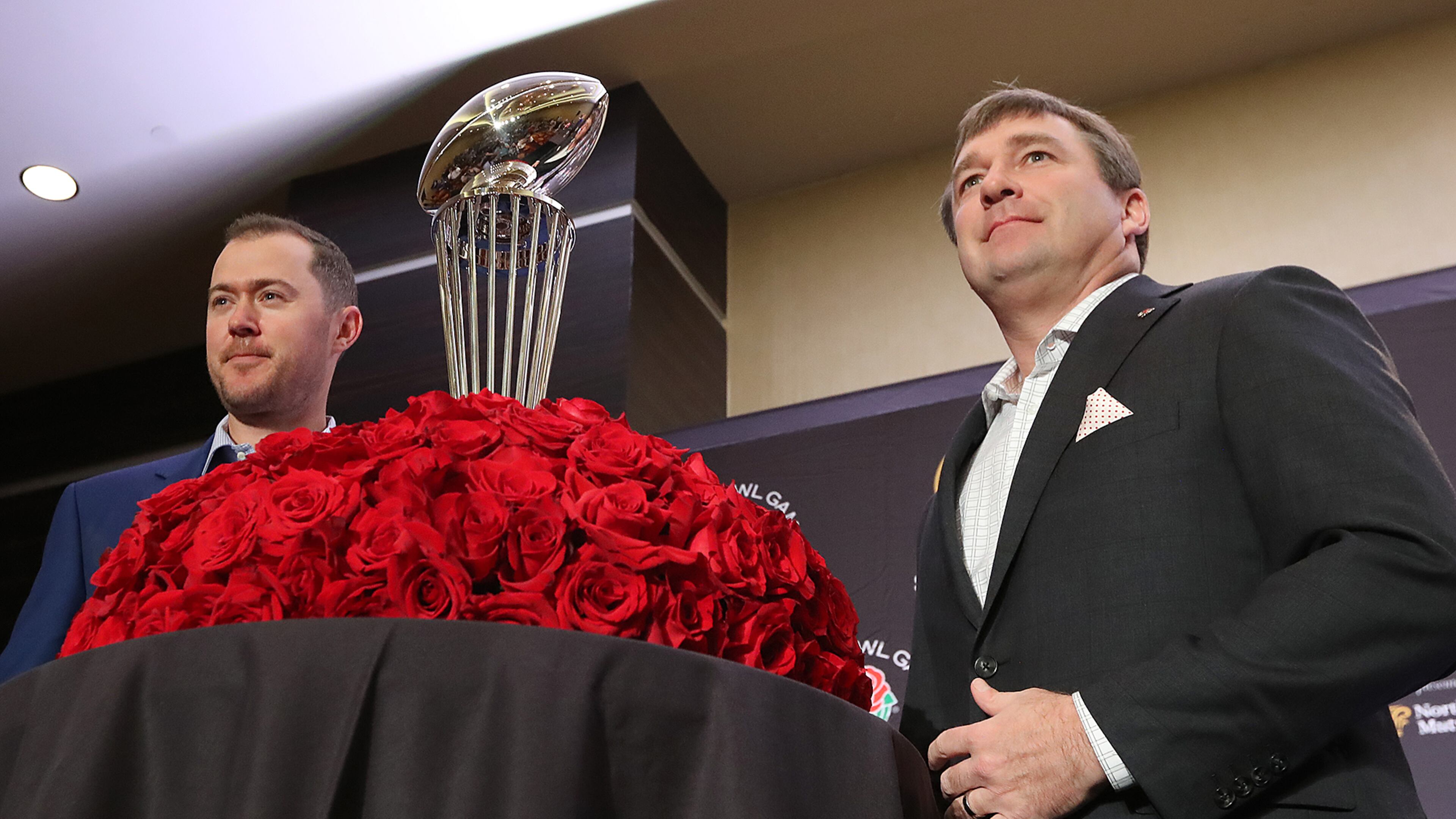Kirby Smart raised expectations, changed mindset at Georgia

When Kirby Smart took command of Georgia’s football program two years ago, he touched on the need for a culture change, for seeking something greater, for not settling. It wasn’t meant as a slap at Mark Richt, even if some took it that way. Smart was just being blunt about the mindset he brought with him after years working under Nick Saban, a mindset that led to a drawer full of championship rings.
On Sunday, the eve of Georgia’s biggest game in 35 years, Smart returned to those talking points.
“You've got to win the players over because they may not see it as there was a problem,” Smart said. “They may see it as they were completely happy with winning nine, 10 games a year. That's what I call complacency. Probably the greatest challenge was not accepting what had been done before as the norm and convincing the players that are currently on the team that we can do better.”
Georgia’s presence in the college football playoffs and Monday’s Rose Bowl against Oklahoma is validation of Smart’s methods and the decision by the administration and power brokers in the shadows to make a coaching change. It became evident during a disappointing 8-5 first season that several players initially were resistant to Smart’s methods. But this season, in a more pronounced turnaround than maybe most expected, Georgia won its first SEC championship since 2005 and they’re in position to play for the national title for the first time since the 1982 Sugar Bowl loss to Penn State.
Smart and Oklahoma coach Lincoln Riley have much in common. Both are relatively young head coaches (Riley 34, Smart 42). Both are early in their tenure (Riley first year, Smart second). Both stepped in for long successful coaches (Riley for Bob Stoops; Smart for Richt) at established programs stuffed with talent.
That both elevated their programs to this point so quickly is remarkable. But maybe it shouldn’t be that surprising.
Cale Gundy, Oklahoma’s co-offensive coordinator and brother of Oklahoma State head coach Mike Gundy said, “College football has changed. It’s going through a process where there’s been some coaches who’ve been in the game for a lot of years. We’re starting to see some young guys who’ve been coordinators, and athletic directors and school presidents are giving them opportunities more than in the past.”
Talk to Georgia and Oklahoma players about their respective head coaches and the comments mirror each other. Smart and Riley are both seen as energetic, focused, demanding.
Bulldogs tailback Nick Chubb on Smart: “He just brought a different mindset, different change. Everyone has bought into his system and the way that he coaches and obviously it worked.”
Sooners tight end Mark Andrews on Riley: “He’s been able to incorporate what he’s done with this offense through the whole team. His mentality and his hard work were infectious for our offense the last few years and now it’s spread through the whole team.”
Georgia won’t ultimately be defined by this game. The fact the Dogs got here, a player on the national scene, in Smart’s second season should be a strong enough signal about what direction the program is headed. But he and Riley both view seasons independently, not as part of some continuing trend.
Riley: “I don’t know that you ever feel comfortable in this job. I think the second you do, you're probably in trouble.”
Smart: “That's what I learned from Nick: You never arrived, and your way is not always the best way. If you can go do it a better way or what fits your team the best, that's the best thing there is to do. I think Lincoln and I are both not egotistical to the point where we think this is because of us. We know there is a lot more involved in it.”
They’re like clones.
If Smart needed humbling, he knows what tape to watch. He was Alabama’s defensive coordinator four years ago in the Sugar Bowl when Oklahoma rolled to 31 points in the first half on the way to a 45-31 win. The Sooners viewed the result as validation for themselves and the Big 12 against an SEC power. The Tide viewed it as its players lacking motivation after a loss to Auburn that knocked it out of the national title picture.
“Nightmare is a good adjective,” Smart said. “We've reviewed the tape. We've talked about it. I don't like looking at it, for sure. But they did a great job of tempo-ing us, changing things up. They just played more passionate, more energetic. It wasn't like there was anything they did that we haven't seen before. It was their players wanting to win the game more than we did.”
Motivation won’t be a problem this game. Georgia hasn’t been in this position for more than three decades. There’s no reason to think this will be an aberration moving forward.
Earlier: Weekend (Monday) Predictions: Georgia, Clemson advance to final
Fresh podcast: "We Never Played The Game" podcast on Baker Mayfield's illness
Subscribe to the, “We Never Played The Game” on iTunes or listen from the new AJC sports podcasts page or the WSB Radio on-demand page.


